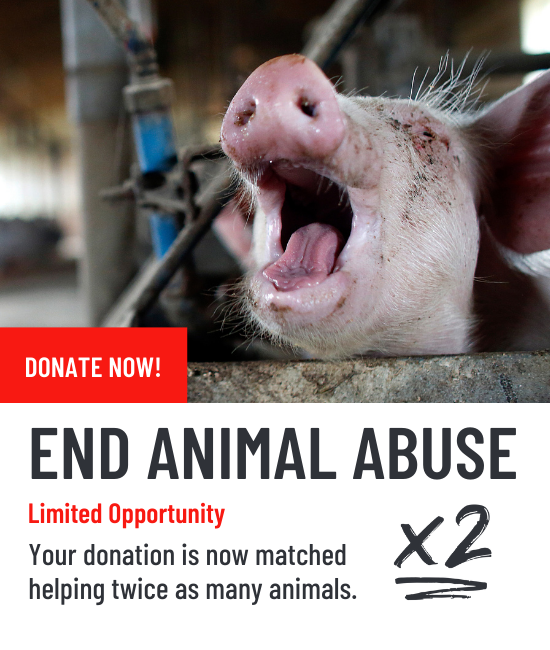Helping Animals In Europe:
Different Countries, Same Mission
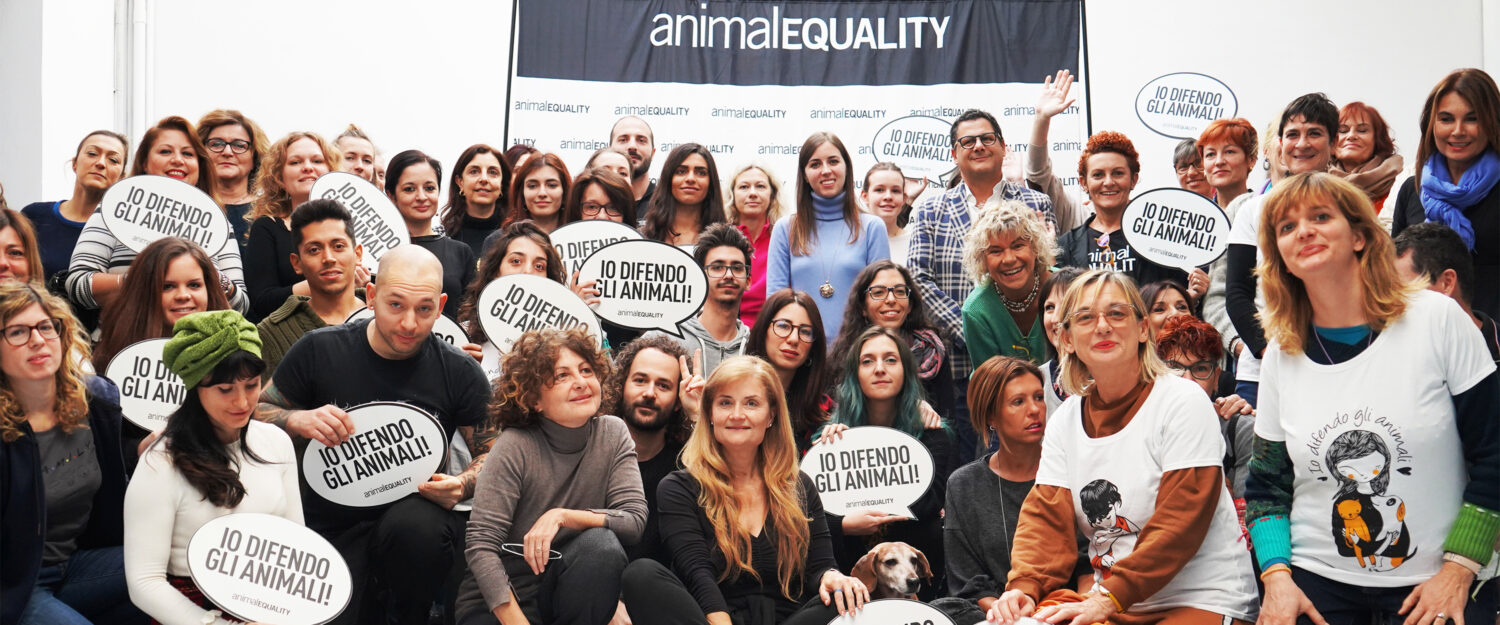
You’re a part of something bigger. There are people all over the world, just like you, reading emails, making donations and taking actions to help animals.
In Europe, there are hundreds of millions of animals suffering on factory farms, but there are also hundreds of thousands of people who want to help them. Together, we’re fighting to end some of the cruellest practices which animals face and create a world where all animals are respected and protected.
Here are some of the biggest campaigns happening in Europe right now:
ENDING THE SLAUGHTER OF MALE CHICKS
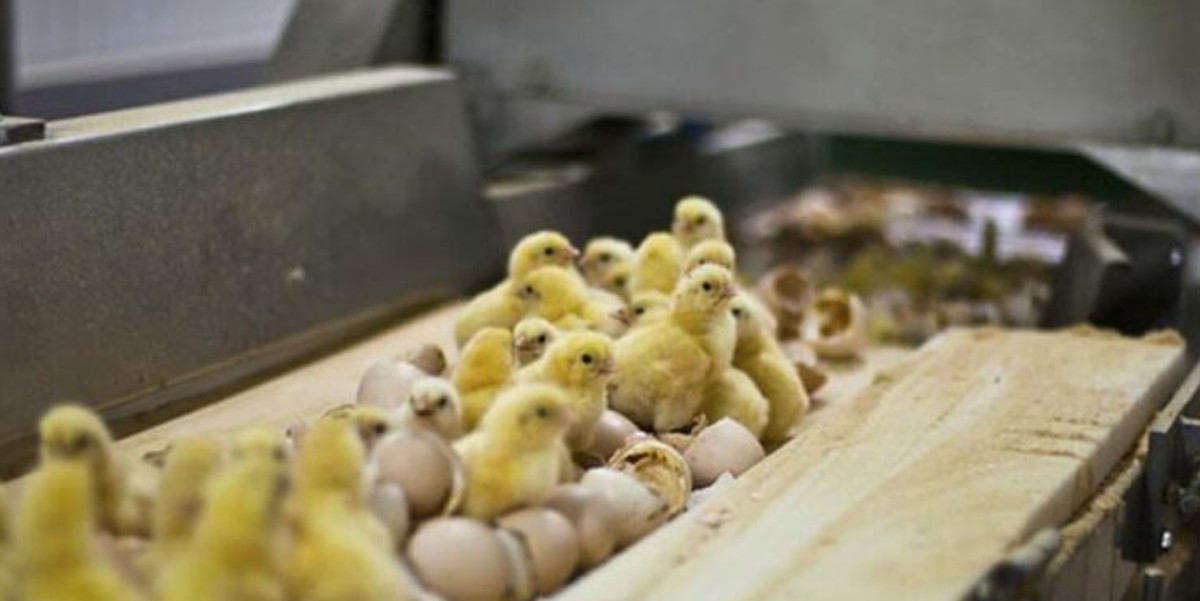
The egg industry breeds chickens in order to use them to produce eggs to sell on supermarket shelves. But only the female chickens – the hens – produce eggs, so when male chicks are born the industry kills them.
This happens in countries around the world, with hundreds of millions of male chicks slaughtered every year. Most are gassed, shredded alive or crushed to death. But we’re changing that.
Currently in Italy, between 25 and 40 million male chicks are killed by the egg industry, but that is set to change. A little less than a year and a half after the launch of Animal Equality’s campaign ‘Stop the Slaughter of Male Chicks’, the Italian Government agreed to end the practice when it approved an amendment to Italian law which will introduce a ban on male chick culling in the egg industry by 2026.
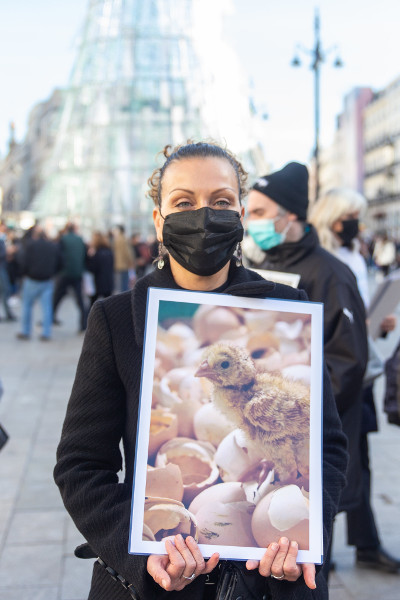
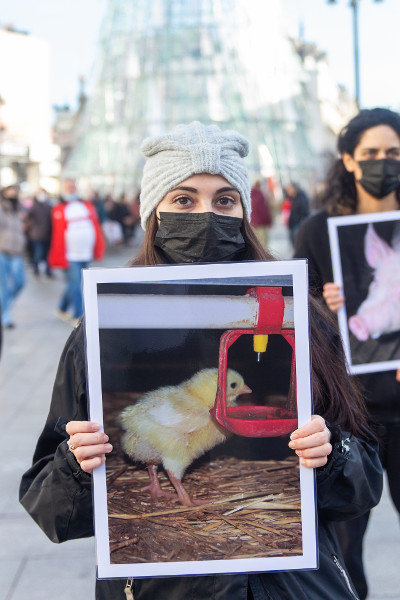
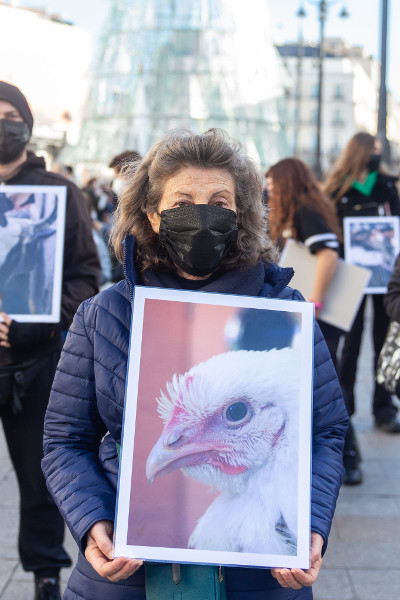
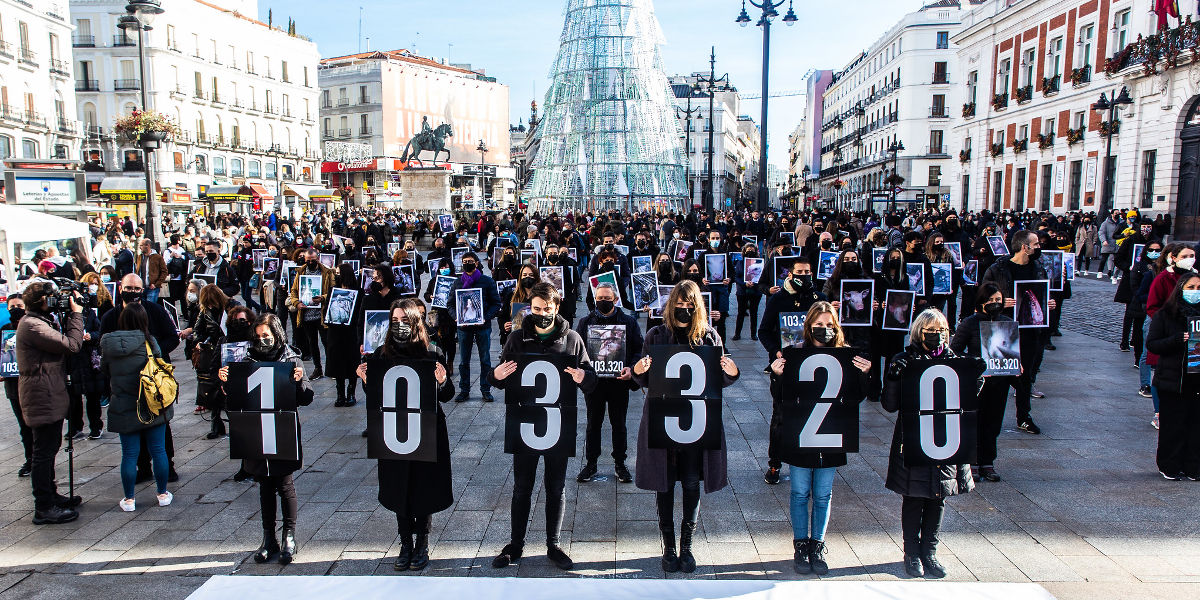
Italy follows France and Germany which have already introduced bans on the killing of male chicks in the egg industry thanks to campaigning by other animal protection groups. And it looks like Spain could be the next to follow.
Spain’s Agriculture Minister recently said that Spain is in favour of a ban on the culling of male day-old chicks within the egg industry, a practice that kills 35 million in the country every year. And the Spanish Government has announced that from Autumn 2022 it will present a plan to end the slaughter of male chicks.
BANNING THE FORCE-FEEDING OF DUCKS AND GEESE
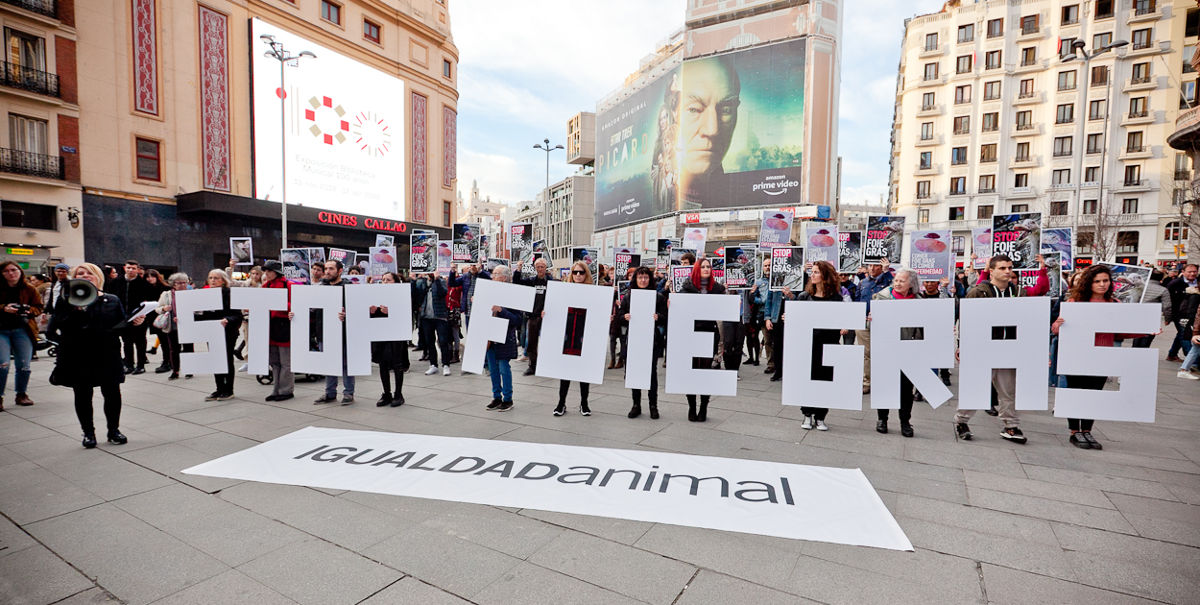
Millions of ducks and geese are force-fed across Europe every year to produce foie gras, a so-called ‘delicacy’ which causes immense suffering. But there is hope that this practice can be banned across Europe with campaigns underway in Spain, Italy, Germany and the UK.
Animal Equality has conducted a number of investigations into foie gras farms in France and Spain, which are two of Europe’s biggest foie gras producing countries.
Every year in Spain more than one million ducks and geese are subjected to the torture of force-feeding to produce foie gras. Animal Equality is demanding that the Spanish Government works to ban cruel force-feeding practices in Spain and across the EU. Spanish actress Sara Sálamo is supporting the campaign and features in the campaign video.
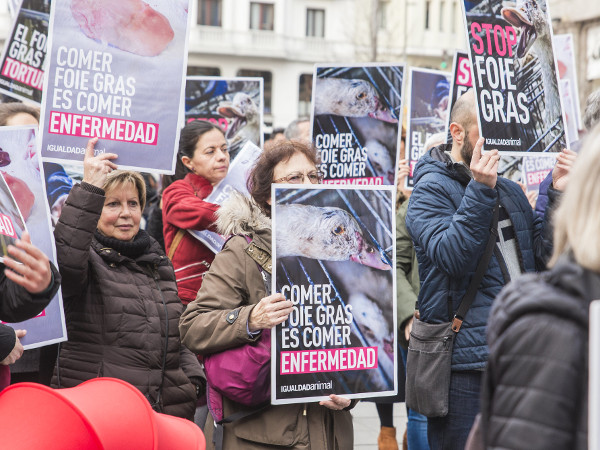
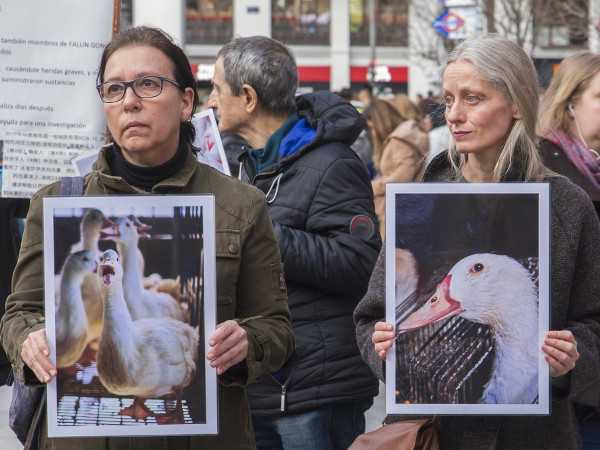
In Germany, foie gras production is currently illegal but the country still imports foie gras from other European countries, so Animal Equality’s team in Germany is working at the EU level to ban foie gras production.
And in Italy, as a result of our investigations, one of Italy’s largest supermarket chains, Coop, agreed to stop selling foie gras.
ELIMINATING CAGES FOR ANIMALS
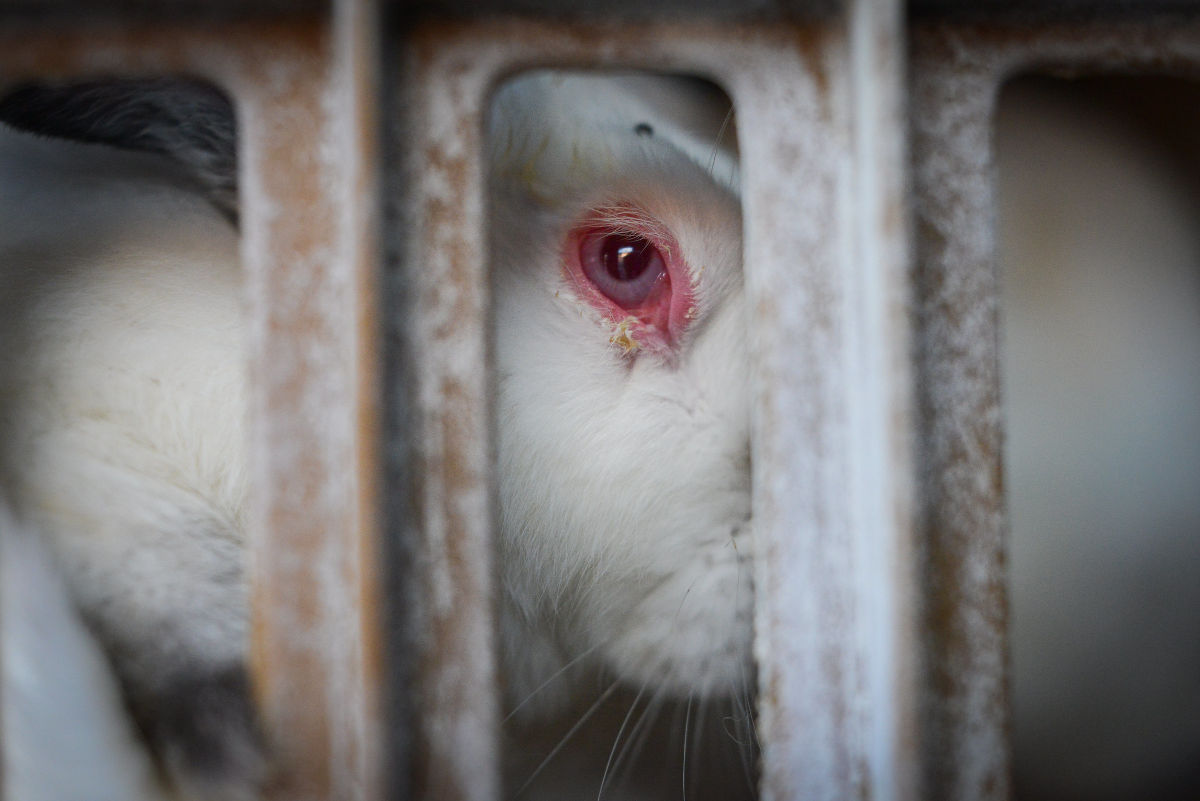
Every year, more than 300 million animals are confined in cages across Europe. Hens, calves, pigs, rabbits, quails, ducks and geese are, for the most part, reared in cages that restrict their ability to move around, forcing them into a miserable life full of suffering.
Rabbits are one of the most commonly raised animals on factory farms in Europe. They’re reared either in battery cages or in so-called ‘enriched’ cages where they have barely more space available than the surface area of an A4 sheet of paper each.
They’re forced to rest their feet on wire floors that cause them painful wounds, they cannot stand upright on their hind legs, and they cannot run, jump or express their other natural behaviours.
In June 2021, we achieved an incredible milestone. Thanks to work by Animal Equality and our animal protection allies across the continent, in June 2021 the European Commission announced a commitment to phase out cages on farms by 2027.
But this is not the end of the matter. Politicians can turn their backs on animals at any moment, so we’re keeping up the pressure.
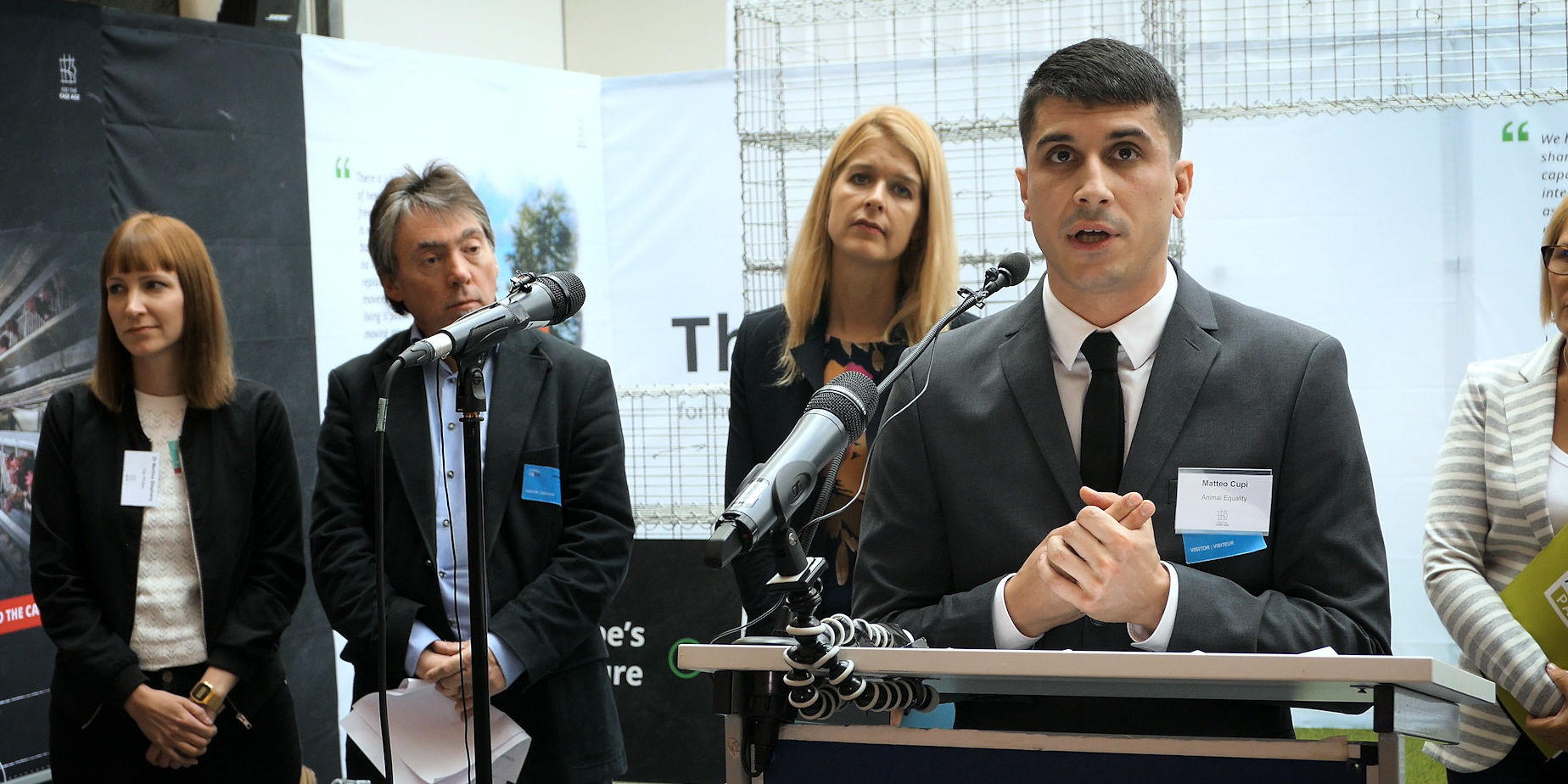
In Italy, Animal Equality has launched a campaign and a petition to press the Italian Government to hold the European Commission to its commitment.
In Spain, Animal Equality has been campaigning for companies to stop using cages for hens in their supply chains. As more companies move away from cages, support for cages decreases and we get closer to a cage-free Europe.
While ending cages won’t end cruelty for animals, it will be a major step in the right direction and will lead to even stronger reforms in the future.
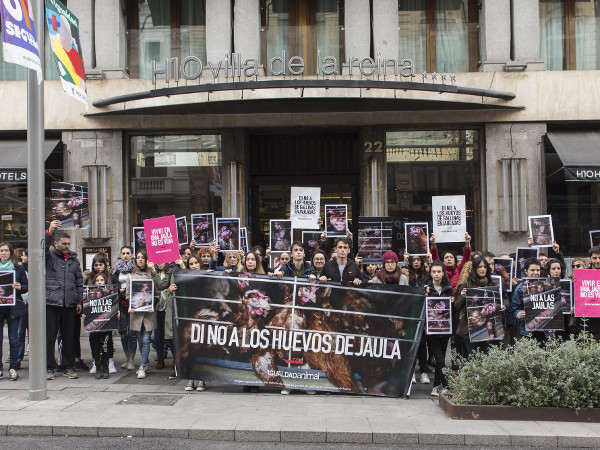
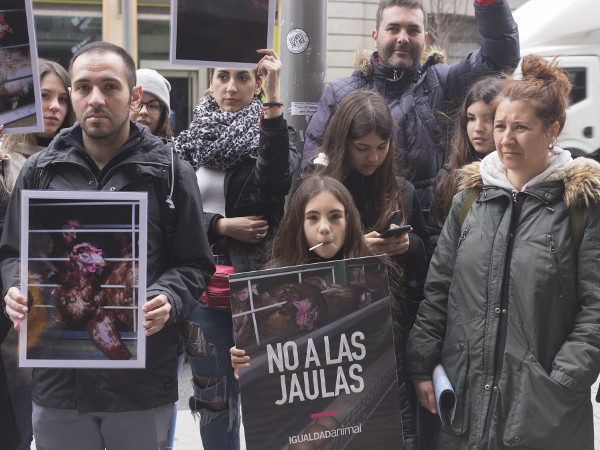
ENDING LIVE TRANSPORT OF ANIMALS
On the 1st February 2022, a truck containing 640 piglets overturned on a motorway near Pordenone in the North-East of Italy. The piglets were being transported to a ‘fattening’ farm. 400 of the 640 piglets on board were killed in the accident. It was another tragic story of animals suffering while being transported across Europe and around the world.
Worldwide, it is estimated that over two billion farmed animals undergo long-distance travel every year, exported around the world for breeding, ‘fattening’ and slaughter. Many do not survive the journeys.
Animal Equality has been investigating live transport for years, including the live transport of lambs across Europe to Italy.
Every year, hundreds of thousands of lambs and sheep are forced to endure journeys from countries such as Hungary and Romania to Italy. The journey can be as long as 1,200 miles and lasts for days in completely unacceptable conditions.
Our investigators have followed these lambs on their long journeys so their story can be told to the public. We also document violations of the law that cause suffering to the animals and report offences to the authorities.
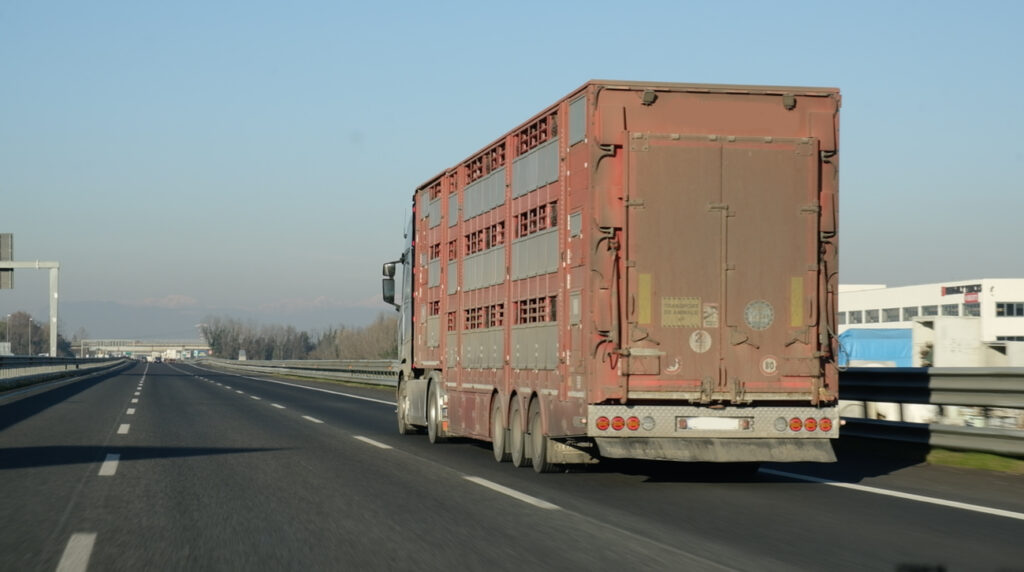
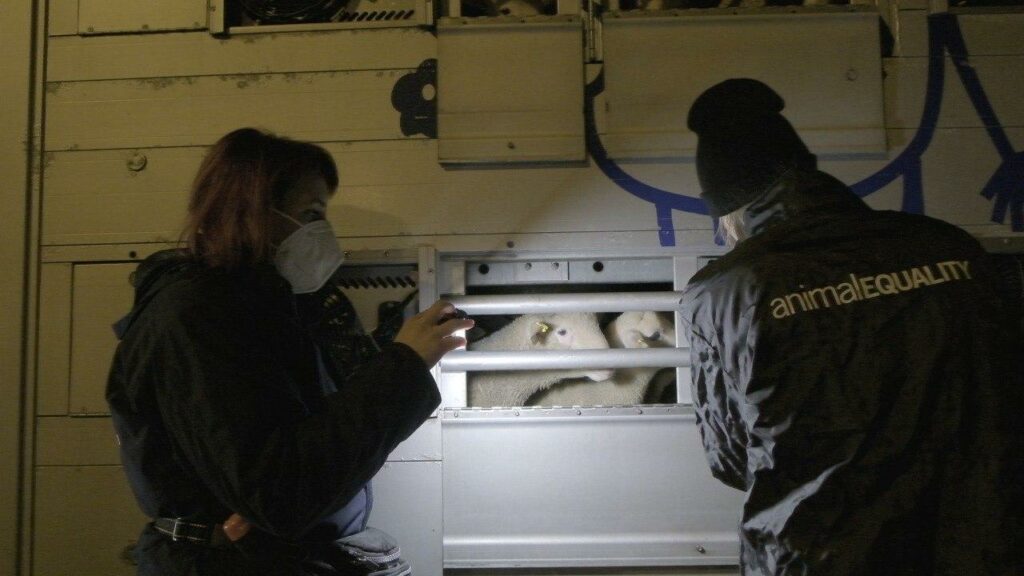
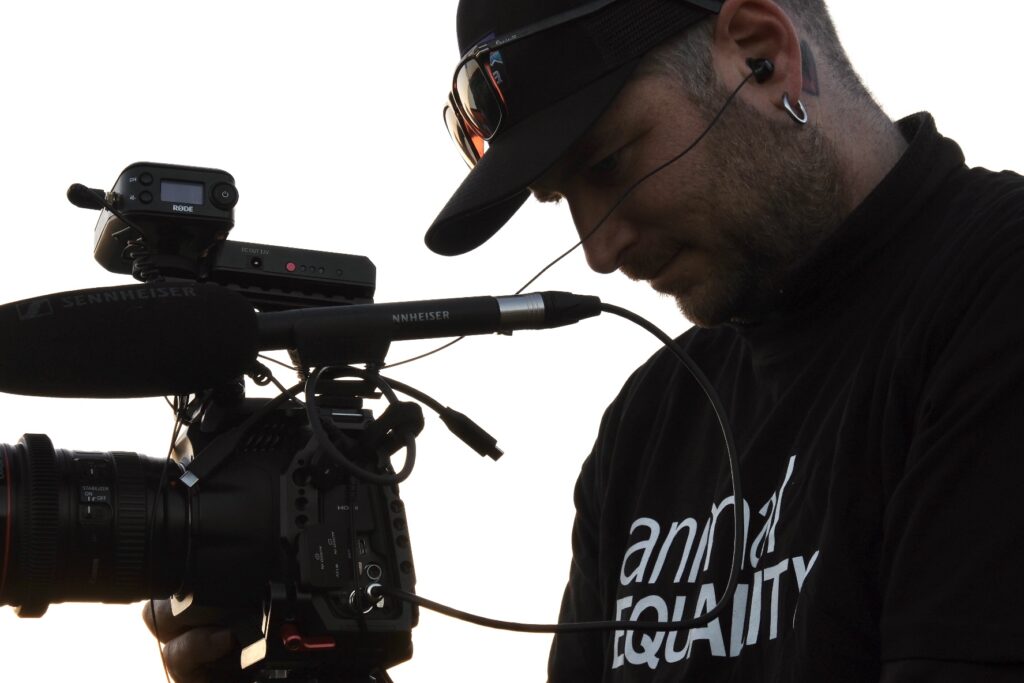
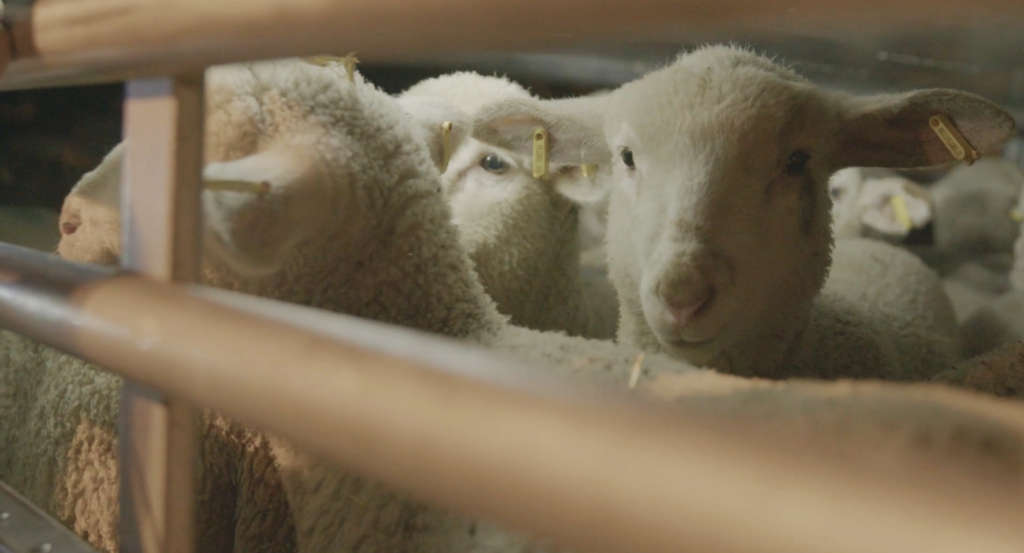
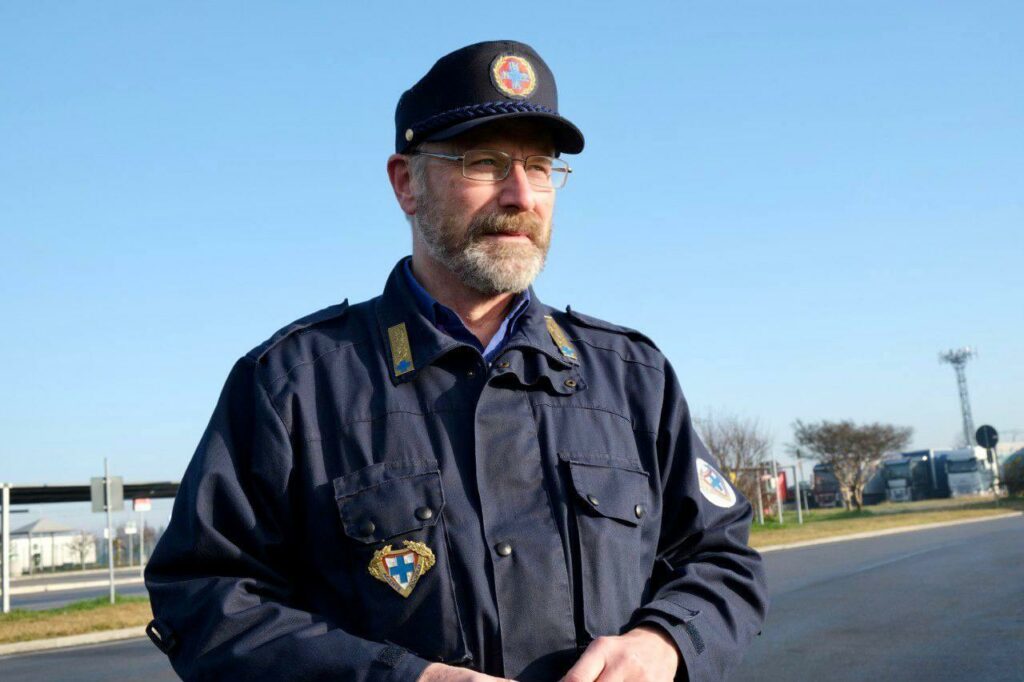
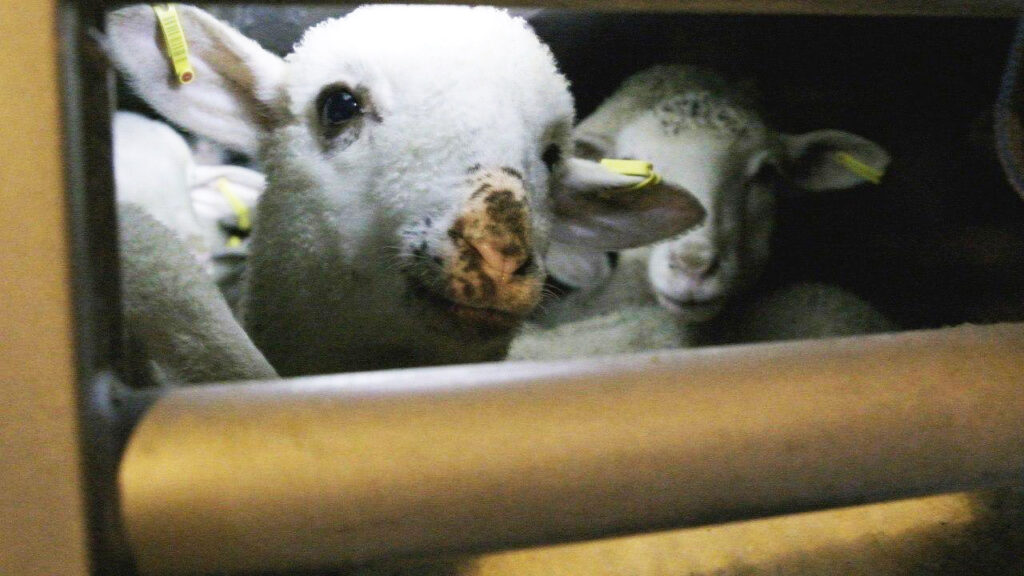
Thanks to our work and the work of other organisations across Europe, the number of lambs killed for human consumption in Italy has decreased over the years.
According to Istat, between 2010 and 2016, consumption of lamb meat declined by 50%.
Progress has been made on a political level too. Thanks to these investigations and campaigning, the EU decided to establish a Commission of Inquiry to investigate the live transport of animals and the breaking of existing laws.
At the end of 2021, the Commission of Inquiry officially recognised the gaps in the law and the poor implementation of existing laws, and agreed to review them by 2023.
Animal Equality has launched a petition in Spain calling for a ban on the export of live animals and has gathered over 46,000 signatures so far.
See more progress being made for animals around the world below.

